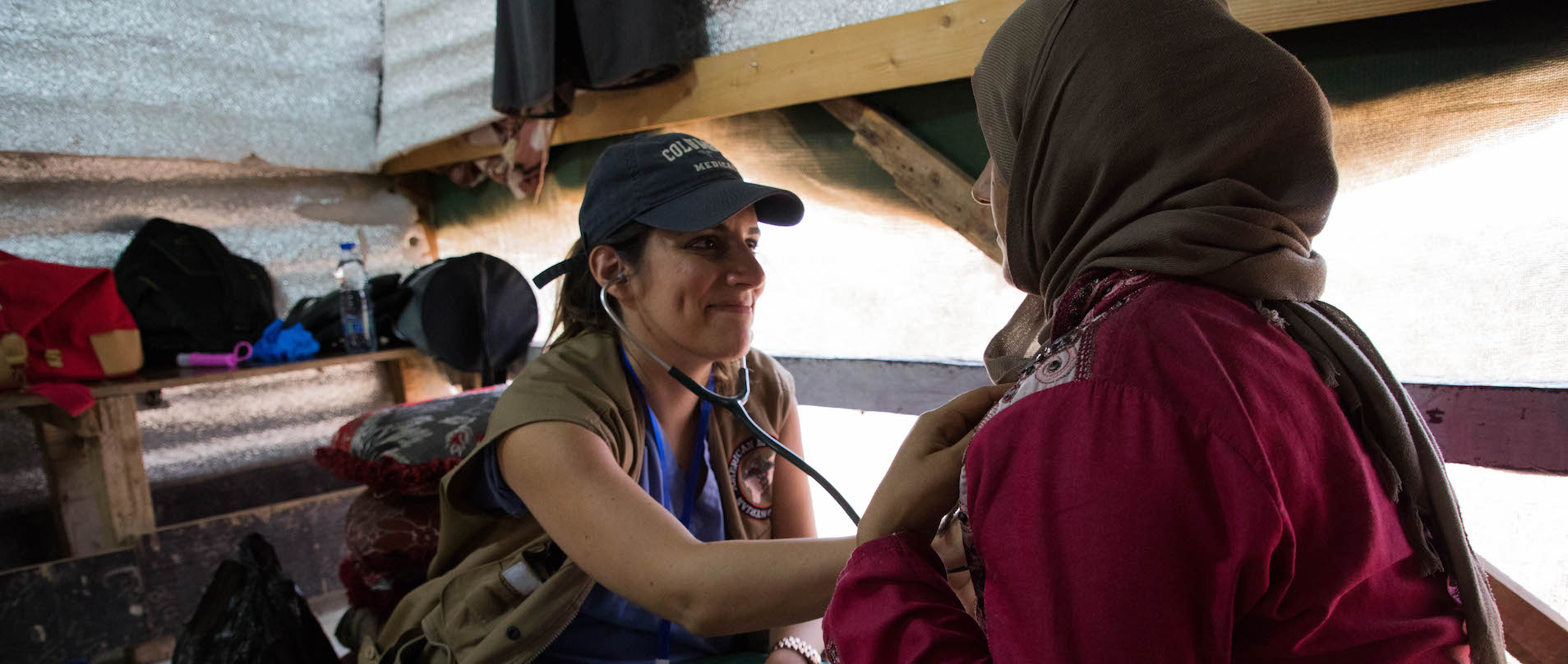February 14, 2019
While many emergency and humanitarian services look to provide primary care for refugees, very few include aspects essential to women’s health. Conflicts often disrupt access to essential services, and prolonged emergencies further weaken a country’s health system. In times of conflict, women disproportionately suffer the effects of disrupted health systems, sexual and gender based violence (SGBV), and the burden of disease. Combined with displacement, this has caused barriers to civilians addressing their health needs in Syria and beyond, and further impacted already vulnerable populations, including women and girls.
Roughly 75% of Syrian refugees are women and children; however, few international organizations specifically address women’s health care. Lack of sexual health and reproductive care is the leading cause of death, disability, and disease among refugee women.
These critical needs continue to grow, even as funding for reproductive health declines. The combined reproductive health program expenses for UNFPA, governments, and NGOs has increased steadily since 2014. In that same period of time, donor contributions have decreased, especially in 2016 and 2017. As a result of these cuts, reproductive health services for Syrian refugees have paid the price, as UNFPA estimated that it would be unable to reach 12,000 GBV survivors or deliver 5,000 newborns in the Za’atari refugee camp in Jordan.
Reduced use of contraceptives, menstrual irregularity, unplanned pregnancies, preterm birth, and infant morbidity, are ongoing issues for Syrian refugee women. Several studies have shown that they also suffer from high levels of SGBV, including rape, assault, harassment, intimate partner violence, early marriage, early age at pregnancy, frequent urinary tract infections, and complications during pregnancy.
Syrian refugees often report high rates of gynecologic problems, including menstrual irregularity, reproductive tract infections, severe pelvic pain, and dysmenorrhea. Married Syrian refugee women living outside of refugee camps suffer most notably from micronutrient deficiencies, sexually transmitted infections, and mental health symptoms. Very few, however, visit a gynecologist due to accessibility gaps, stigma, fear, and a general lack of knowledge about the importance of reproductive health.
In addition to impacting physical health, displacement can also have profound impacts on women’s mental health. In addition to the general stresses of refugee life, such as lack of livelihoods opportunities, substandard housing conditions, lack of access to food and transportation, and potentially having to learning a new language, women often bear the additional societal burdens of ensuring the care and education of their children, and navigating a new culture that may involve the changing role of women within society. Women refugees may also face different barriers in accessing mental health services in comparison to their male counterparts.
Access to culturally sensitive care and support is critical throughout a woman’s life, and especially during her resettlement in a new country. In 2016, SAMS supported 66 reproductive health centers inside Syria, delivering nearly 40,000 babies and providing one-quarter of a million reproductive health services. In 2017, SAMS provided 457,043 reproductive health services in Syria, supported three new reproductive health facilities in Hama and Idlib province, and provided reproductive health training for community health care workers. In Lebanon, SAMS continues to support women’s health services through annual OBGYN specialty missions as well as mental health and psychosocial service programs focusing to assist mothers and support healthy child-rearing practices, treat anxiety and speech disorders in children, and address the psychological wounds of victims of conflict. Despite these efforts, more needs to be done to address and support the unique health needs of women refugees across the region.



